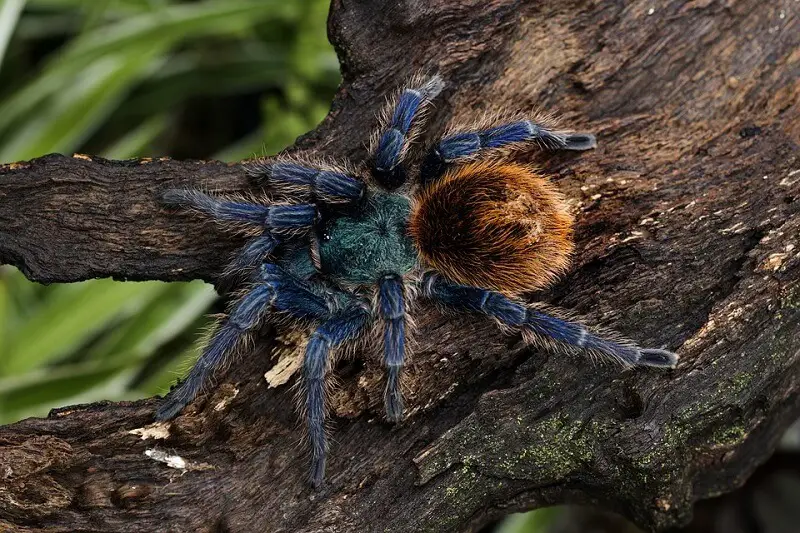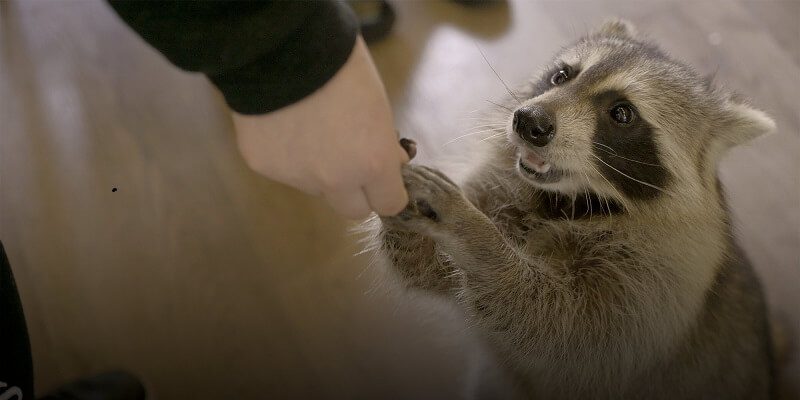General Features
- Common name: Fennec Fox
- Scientific name: Vulpes zerda
- Adult size: Adult weight from 900g to 1.6 kg
- Life expectancy: Up to 14 years in captivity
- Breeding difficulty: Intermediate level; they are intelligent, sociable beings who need interaction
The Fennec fox, also known as the desert fox, is a beautiful, small animal of the fox family. Fennec foxes can be kept as pets, but they are not very common, as they are considered exotic animals. They are small, except for the big ears.
Fennec foxes behave like a dog, but since they are not domesticated, they will require thorough socialization. You will need to take precautions to prevent them from escaping when they are kept as pets.
Before deciding whether to adopt one of these beautiful animals, make sure you have the legal right to keep a fennec fox as a pet where you live.
Can you buy a fennec fox in the US?
You might also like my articles about:
In New York, Fennec Fox is specifically specified as the appropriate pet. Also, there are some other US states that will allow you to keep a Fennec Fox without any special authorization or license. These states include Arkansas, North Carolina, Indiana, Nebraska, Ohio, Oklahoma, Montana, Michigan, Wyoming Tennessee, and New Mexico.
How does a fennec fox look?
The Fennec or fox of the desert is a small mammal, with an average mass between 0.7-1.6 kg, a body length of 29-40 cm, a tail length that can reach 20-30 cm, and a height of about 20 cm. One of the characteristic features of the fennec is its large ears, which can reach a length of about 15 to 20 cm.
Their large ears are an essential adaptation to the desert environment, where temperatures can go up to 40 degrees C during the day, maintaining a constant body temperature. The huge ears help the fennec cool down because, being large and well-vascularized, they lose a lot of heat.
The coat has a cream-beige color. Its soles are covered with fur to keep them safe from the hot sand. It does not have that strong smell, typical of other species of foxes.
Fennec foxes have a soft, thick, short, lighter coat on their tummy and reddish on the back, with a few black spots on the back and tail.
Behavior and temperament in Fennec foxes
 Fennec foxes are highly sociable animals, living in colonies of up to 10 individuals in the wild. The smallest of the wild canids, often purr like a cat when they are satisfied.
Fennec foxes are highly sociable animals, living in colonies of up to 10 individuals in the wild. The smallest of the wild canids, often purr like a cat when they are satisfied.
Like other small animals, Fennec foxes use smell as a defensive mechanism. Although they are not at the level of skunks or ferrets, fennec foxes have scent glands on the ends of the tails. This gives them a strong, musk-like smell when they are scared or stressed.
They are very active, fast, and agile and have high vocalization. These foxes are nocturnal in the wild, but in captivity, a fennec pet adapts to its owner’s schedule. They are clean animals and can be trained, although the owners have different opinions about the facility of training.
Some foxes can use a litter box quite well, although a covered box works best because of their tendency to dig.
The process of training in the house involves frequently taking the fox to the sandbox or securing an outdoor enclosure and giving them plenty of snacks when they manage to go to the litter or outside. Never punish them for eventual accidents at home.
Fennec foxes are quite similar to dogs, and offspring raised in captivity are usually docile, biting only if they feel cornered or threatened. They can be trained on a leash and come when called. However, they should always be left without a leash when inside the house or in the yard.
These animals are not generally afraid of strangers and are friendly to everyone. It is possible to disturb the other animals around the house, only if the fennec fox will want to play with them all day.
Hosting a fennec fox as a pet
These foxes are very active and need to consume their energy somewhere. They are curious and will do anything. They are also known for their habit of digging. Outside spaces must be fenced to prevent them from digging under or jumping over the fence, which they will manage to do very quickly.
Burying a part of the fence and facing the top inward, or covering all the outer space should prevent it from escaping. Do not go cheap on materials, though, because foxes can dig holes up to 6 m deep if they have a reason.
In addition to a fenced-in space, they need relatively high temperatures. Anything less than 20 degrees C and you will see the fennec fox shaking.
Some owners have learned their intake, just like dogs, and it is a good way for them to consume their energy. If you stay in a yard that is not fenced, you will need to use a leash. They are extremely fast and if they run for something like they would in the wild, it will be hard for you to recapture it.
In general, fennec foxes should be kept in cages when they are not supervised because they can do anything. When supervised, they can sit outside, in the house, with their masters. Even though fennec foxes are nocturnal in the wild, one of their favorite activities is to lie in the sun.
Using a dog cage in indoor spaces, and outdoor paddocks are very good as long as they do not have the opportunity to escape.
What do fennec foxes eat?
In the wild, fennec foxes are omnivorous, feeding on insects, rodents, plants, fruits, and reptiles. An ideal diet for a domesticated fennec will most likely be a diet with marketed food for wild animals, such as zoos give their animals, but a good owner will successfully feed them with a mix of dog food, cat food, vegetables, and fruits.
Some breeders will also recommend an alternative diet with lean meat, vegetables, and a mix of vitamins.
Common health problems
You will need to find a veterinarian who will accept to treat a Fennec fox but the pet will usually need dog-like preventive care.
They should be vaccinated regularly for rabies, using only an inactivated vaccine, for Carré disease, parvovirus, and adenovirus. Your veterinarian should be able to recommend a safe combined vaccine for common canine diseases.
There is some concern about the use of the typical MLV vaccine for Carré’s disease in Fennec foxes, but there are vaccine lines available that are safe. An annual examination is recommended, and your veterinarian will advise you to deworm them, prevent heartworms and control the appearance of fleas, if necessary.
Purchase of a Fennec fox
Before you buy a Fennec fox, make sure they are allowed to be kept as pets in your area, as some places restrict the owning of exotic animals.
Buying a fennec fox can be problematic, and usually expensive. Some breeders will prematurely remove fennec offspring from their mothers and sell them for a higher price. Try to check if breeders have a good reputation and if they have medical records for their animals before buying a fox from them.




